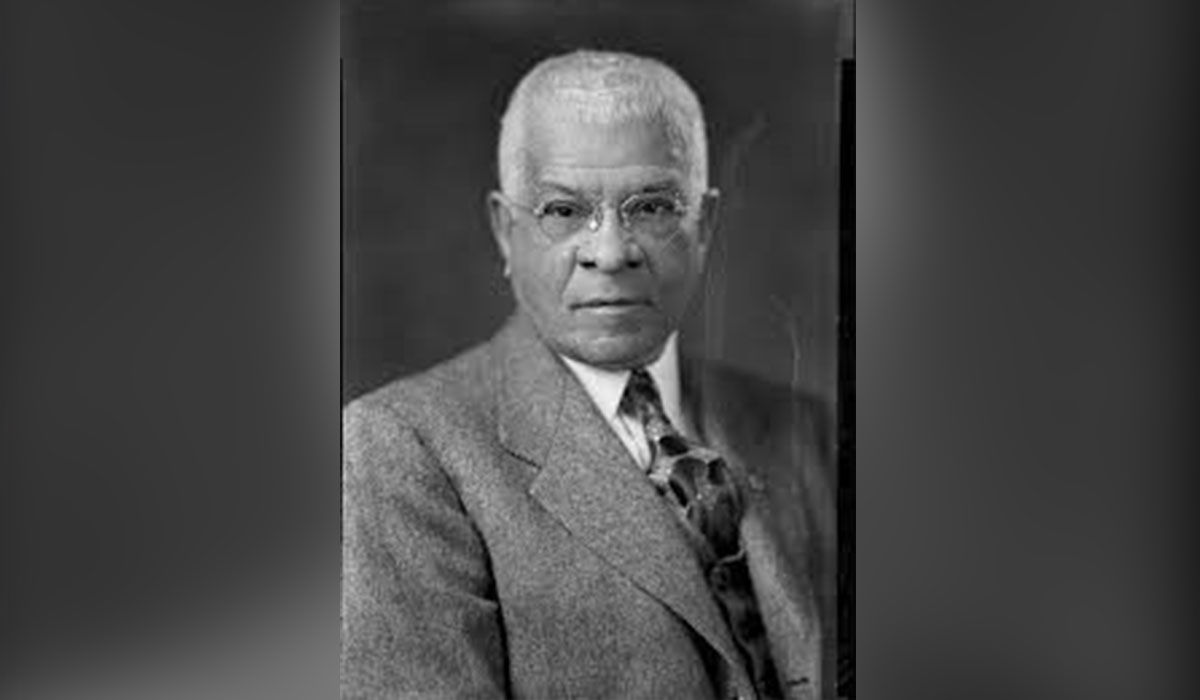

There is a rich history of contributions made by African Americans in sports and entertainment. However, we sometimes forget about the Black business pioneers and social innovators who gained a cooperative advantage and created countless jobs, helped transform entire communities, and engendered sustainable development. Fast-forward to contemporary times, and there are still many African Americans starting their own enterprises. A recent study found that Blacks were more likely to start a business than Whites. Another one found that Blacks possessed above average levels of confidence and optimism (as compared to other groups) which are associated with higher rates of early-stage entrepreneurship. All optimistic signs! However, what was troubling was that the findings of those studies suggested that Blacks are more likely to fail than Whites in the early stages of the entrepreneurial process. One reason for this may be that Black communities more frequently lack a framework to create successful entrepreneurial role models. Additionally, these communities often lack support and resources.
The value of modelled behavior and exposure to positive images is a significant contributor to one’s success. It has been argued that the lack of African American traditions in business knowledge hinders intergenerational transference in business ownership. Many of us have never heard of former slaves such as John Merrick and Alonzo Herndon, who despite facing poverty and racism, managed to become founders of successful companies (North Carolina Mutual Life Insurance Company and Atlanta Life Insurance Company respectively). Another noteworthy individual is Charles Clinton Spaulding, the individual who managed the North Carolina Mutual Life Insurance Company for 52 years from 1900 to his death in 1952. At that time, Spaulding was seen as one of the greatest business executives in America, and he is currently recognized by Harvard Business School as a “Great American Business Leader of the 20th Century.”
Spaulding had his own philosophies of Management and Entrepreneurship in the early 20th century that educators should consider introducing to students. In 1927, he wrote “The Administration of Big Business,” an article that outlined eight “fundamental necessities” in management, and predated Chester Barnard’s Functions of the Executive as well as the US translation of Henri Fayol’s General and Industrial Management.
In 1937, Spaulding also wrote a classic article entitled “Business in Negro Durham” (during the great depression), where he outlined what he called the Four Cardinal Points of Entrepreneurship. He drew from his entrepreneurial experiences leading what was then the world’s largest Black business, the North Carolina Mutual Life Insurance Company. History has shown that African Americans have forged ahead in business despite great odds, and everyone should benefit from learning some of the entrepreneurial philosophies that made Black business leaders such as C.C. Spaulding successful:
Cardinal Point 1: Character
According to Spaulding, “John Merrick and A. M. Moore (his fellow co-founders) had character. It was not accidental that they were honest and courteous and courageous. Their characters supplemented each other. They were willing to work hard, to make sacrifices, and to shoulder responsibilities.”
It is necessary to emphasize the importance of having character to business students because there is sometimes a tendency for the media to glamorize the “Gordon Gekkos” and the “Wolves of Wall Street.” Budding entrepreneurs need to understand that ethical businesses tend to be the ones that are admired and supported by employees and customers alike. Modelling good character was indeed central to Spaulding and his co-founders. One concrete way in which they exhibited character in the early stages of their insurance business was by paying their employees first and not drawing salaries for themselves until the business was profitable.
Cardinal Point 2: Fundamental Business Principles
According to Spaulding, “general business principles are not enough unless they relate specifically to the type of business in which the person is engaged. Our only unsuccessful business venture was the Durham Textile Mill. Without adequate knowledge for the making of textiles, or a market for the disposal of same, we, nevertheless, organized the mill in 1914, but we knew well enough to sell it the next year.
Spaulding observed that it is paramount that would-be entrepreneurs understand key aspects of the business in which they wish to venture. By “fundamentals business principles,” he was also referring to having knowledge of the market and industry before launching a venture. It is no surprise that according to research, industry experience is strongly linked to entrepreneurial success.
Cardinal Point 3: Cash or its Equivalent
According to Spaulding, “there must be cash or its equivalent. Yet, many businesses have failed because they had only cash…Our insurance company did not have capital in its beginning.
By leveraging other forms of resources, which are needed for the survival of the venture, entrepreneurs can effectively reduce their financial capital and dependence on loans. This way of thinking reinforces the role of entrepreneurs as individuals who perceive and masterfully exploit opportunities. Other forms of capital are real (physical assets), social (networks and relationships) and human (talent within the organization).
Cardinal Point 4: Social Service in Business
According to Spaulding, “there must be social service in business. There has never been a time when my associates have not promoted the best interests of the community.”
Spaulding was ahead of his time when it comes to social entrepreneurship and corporate social responsibility. He co-founded several companies and all his start-ups were founded with the purpose of helping the community, be it improving the conditions of African Americans or strengthening race relations by creating safe work environments where Blacks and Whites collaborated.
Spaulding’s thought leadership, including his four cardinal points of Entrepreneurship, provided much needed advice to Black entrepreneurs in the early 20th century. His status as a significant contributor to the field of Management is now being recognized, and everyone can truly benefit from learning from this pioneering individual. Thankfully, some Management textbooks are currently including the contributions made by Spaulding. Indeed, his business writings are still useful to individuals today.
Charles Clinton Spaulding was inducted into the Thinkers50 Hall of Fame.
Dr. Leon Prieto (Clayton State University) and Dr. Simone Phipps (Middle Georgia State University) are Associate Research Fellows at Cambridge Judge Business School, and the authors of African American Management History: Insights on Gaining a Cooperative Advantage.

Thinkers50 Limited
The Studio
Highfield Lane
Wargrave RG10 8PZ
United Kingdom

Thinkers50 Limited
The Studio
Highfield Lane
Wargrave RG10 8PZ
United Kingdom

| Cookie | Duration | Description |
|---|---|---|
| LANG | 9 hours | Linkedin set this cookie to set user's preferred language. |
| nsid | session | This cookie is set by the provider PayPal to enable the PayPal payment service in the website. |
| sp_landing | 1 day | The sp_landing is set by Spotify to implement audio content from Spotify on the website and also registers information on user interaction related to the audio content. |
| sp_t | 1 year | The sp_t cookie is set by Spotify to implement audio content from Spotify on the website and also registers information on user interaction related to the audio content. |
| tsrce | 3 days | PayPal sets this cookie to enable the PayPal payment service in the website. |
| x-pp-s | session | PayPal sets this cookie to process payments on the site. |
| __cf_bm | 30 minutes | This cookie, set by Cloudflare, is used to support Cloudflare Bot Management. |
| Cookie | Duration | Description |
|---|---|---|
| l7_az | 30 minutes | This cookie is necessary for the PayPal login-function on the website. |
| Cookie | Duration | Description |
|---|---|---|
| CONSENT | 2 years | YouTube sets this cookie via embedded youtube-videos and registers anonymous statistical data. |
| _ga | 2 years | The _ga cookie, installed by Google Analytics, calculates visitor, session and campaign data and also keeps track of site usage for the site's analytics report. The cookie stores information anonymously and assigns a randomly generated number to recognize unique visitors. |
| _gat_gtag_UA_10408481_1 | 1 minute | Set by Google to distinguish users. |
| _ga_ZP8HQ8RZXS | 2 years | This cookie is installed by Google Analytics. |
| _gid | 1 day | Installed by Google Analytics, _gid cookie stores information on how visitors use a website, while also creating an analytics report of the website's performance. Some of the data that are collected include the number of visitors, their source, and the pages they visit anonymously. |
| Cookie | Duration | Description |
|---|---|---|
| NID | 6 months | NID cookie, set by Google, is used for advertising purposes; to limit the number of times the user sees an ad, to mute unwanted ads, and to measure the effectiveness of ads. |
| test_cookie | 15 minutes | The test_cookie is set by doubleclick.net and is used to determine if the user's browser supports cookies. |
| VISITOR_INFO1_LIVE | 5 months 27 days | A cookie set by YouTube to measure bandwidth that determines whether the user gets the new or old player interface. |
| YSC | session | YSC cookie is set by Youtube and is used to track the views of embedded videos on Youtube pages. |
| yt-remote-connected-devices | never | YouTube sets this cookie to store the video preferences of the user using embedded YouTube video. |
| yt-remote-device-id | never | YouTube sets this cookie to store the video preferences of the user using embedded YouTube video. |
| yt.innertube::nextId | never | This cookie, set by YouTube, registers a unique ID to store data on what videos from YouTube the user has seen. |
| yt.innertube::requests | never | This cookie, set by YouTube, registers a unique ID to store data on what videos from YouTube the user has seen. |
| Cookie | Duration | Description |
|---|---|---|
| DEVICE_INFO | 5 months 27 days | No description |
| loglevel | never | No description available. |
| m | 2 years | No description available. |
Thinkers50 Limited has updated its Privacy Policy on 28 March 2024 with several amendments and additions to the previous version, to fully incorporate to the text information required by current applicable date protection regulation. Processing of the personal data of Thinkers50’s customers, potential customers and other stakeholders has not been changed essentially, but the texts have been clarified and amended to give more detailed information of the processing activities.